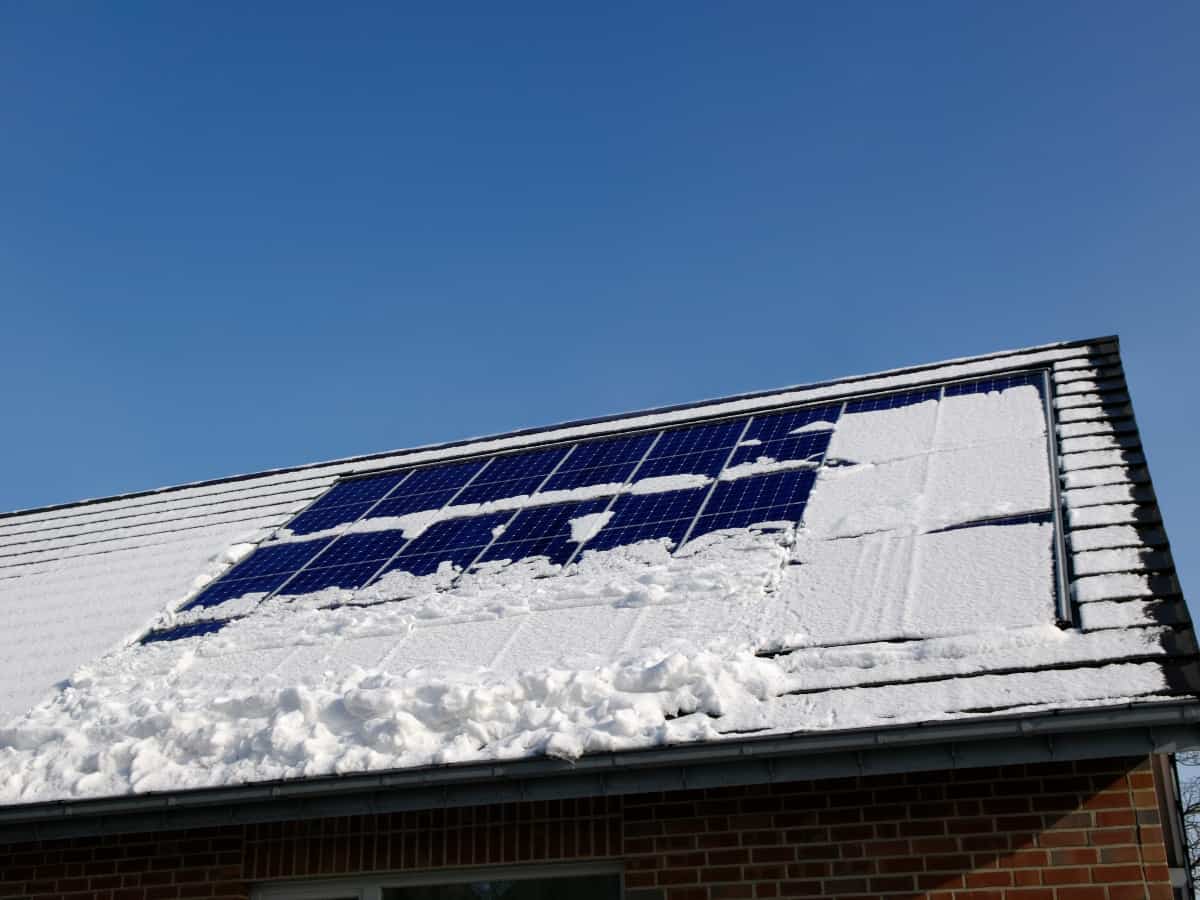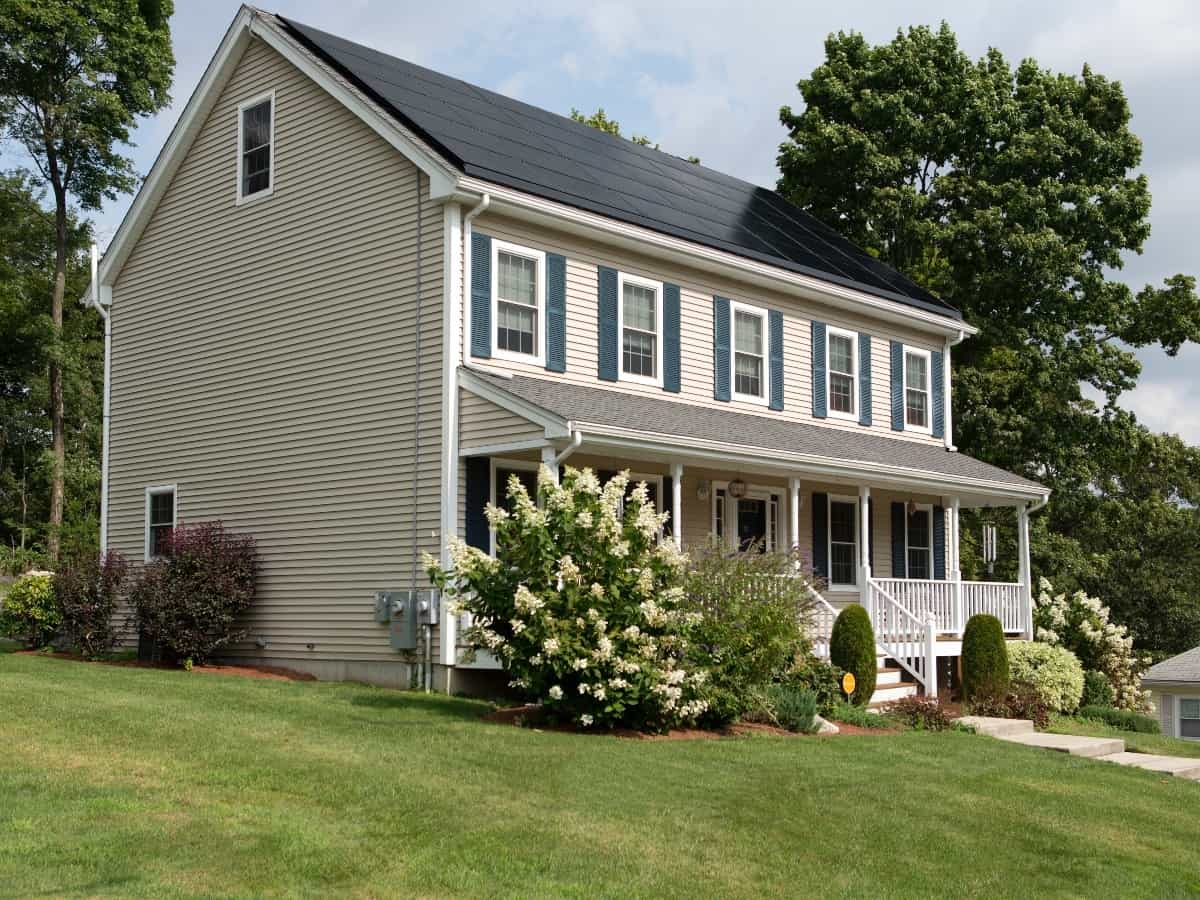Solar panels are an ever more popular option for homeowners. More than a million US homes enjoy solar power, and that number increases every year. From 2020 to 2021, the cost of installed residential solar systems dropped 3.3%. This trend has continued for over a decade. There are many good reasons to consider investing in a solar panel system. Solar power advantages and disadvantages exist, and it’s worth understanding them. Once you know more about solar, you can decide if it’s right for you.
Discover Energy Audits with Solar Energy and ONIT Home
Try our Free Energy Audit to make sure your home is performing at optimum energy efficiency. We’ll inspect every nook and cranny of your home to make sure it’s best serving your needs. We’ll also give you tips on lowering your energy bills, conserving energy, and creating a more efficient space. To learn more about how we can help you maintain a top performing home, visit us online to get started!
How Does Solar Power Work?
Most homeowners will have three main parts to their solar power system.
Solar Panels: These panels contain photovoltaic (PV) cells. They absorb energy from the sun and transform it into energy. This initial energy is in the form of direct current (DC) energy. Most homes can’t use DC energy.
Inverter: The inverter takes the DC energy provided by the PV cells and converts it into a form your home can use. This transformed energy is alternating current, or AC, energy.
Monitoring System: The monitoring system keeps track of energy generated. If you have a solar power provider, it will help them maintain optimal function.
How Does Solar Power Interact with My Local Utility Grid?
A solar power system is usually connected to the local utility grid for those who do not live off-grid. The power company can buy energy from the homeowner. During peak hours, the panels can generate more than your home uses. The energy company would pull this into their grid and offer you credit for it. This process is net metering. When the sun is hiding during off-peak hours, your home could still access the utility’s power grid. Net metering can help offset the cost of buying a solar panel system.

What Are the Advantages of Solar Power?
Solar comes with many advantages. Some of the advantages are obvious, like selling back power to your utility grid. Others are less obvious, like protection against energy cost fluctuations.
- Solar energy is a 100% renewable and inexhaustible energy source.
- Solar panels in operation produce no pollution and create no toxic output.
- The process of creating solar panels does have some environmental impact. The impact of solar panel manufacturing is much less than fossil fuel energy sources.
- The use of solar power reduces reliance on fossil fuels.
- Solar power is useful even in remote areas away from a power grid or in areas where the power grid is unreliable.
- Solar power in operation has no moving parts and is silent.
- The use of solar power creates a lot of jobs in the green economy. Buying solar employs manufacturing laborers, salespeople, researchers, installers, and more.
- Net metering allows homeowners to sell back excess energy to their utility company.
- Federal, and sometimes state and local, tax credits may be available to offset the cost of solar power. In some cases, you may also qualify for grants or other financial incentives. Financing is also available to make solar power accessible to more homeowners.
- Solar power is protection against energy price fluctuations that are becoming more frequent.
- Installing solar power for your home increases its value.
What Are the Disadvantages of Solar Power?
It’s important not to overlook the downsides of solar power. Not every household will benefit from a solar power installation. Some homes do not get enough solar energy. Others may need roof work before solar can be installed.
- It’s not always sunny. While solar panels are ever more efficient, they do not operate at night. Some power is possible even on cloudy days, but not as much.
- Those who live far from the equator may not get much out of a solar power system.
- Solar power systems do need maintenance. Your electrical company manages the grid your home connects to. The panels, battery storage, and monitoring system would be your responsibility. Solar panels do break down over time from exposure to the elements.
- Solar panels do take up considerable space, most often on your roof. Some may find the look of a roof covered in solar panels an eyesore.
- The cost to install a solar power system may be out of reach for some homeowners.
- There are two primary pollutants present in a solar power system. The solar panels themselves contain cadmium. While undamaged, there is no risk of exposure to cadmium. If disposed of improperly, cadmium causes significant environmental harm. Solar panel systems often use deep-cycle, lead-acid batteries. There is no real danger of lead exposure from maintained batteries like the panels. They must be appropriately disposed of when spent to prevent lead exposure.
- Since solar panels are often installed on the roof of a home, you may need to repair your roof. Once the solar system is in place, repairs on your roof become more challenging and more costly.

How Expensive is it to Install Solar Panels?
The cost of solar panel systems varies. The total cost will depend on the size of your home and its energy needs. The price can be reduced by federal, state, and local incentives. You may even find grants or other programs to help afford the cost of installation. Many companies will also help you finance the purchase, so you need not pay the total cost upfront.
When Will Solar Panels Pay For Themselves?
For some, the use of renewable energy means solar panels pay dividends immediately. Solar panel systems usually pay for themselves in about ten to twenty years. That’s assuming they operate in a sunny area and are well-maintained. In areas where energy costs are particularly high, solar panels may take less time to offer a return. Tax incentives and reduced environmental impact also come into play. The peace of mind of a stable energy cost is also a solid benefit of solar power. When weighing the solar power advantages and disadvantages, it’s important to look at all facets of cost.
Do Solar Panels Improve the Value of My Home?
Solar panels can increase the value of your home by an average of 4.1%. The exact value increase depends on your area. Areas closer to the equator or with high energy costs reap the greatest rewards. The increase in the value of your home will only grow with time. The future of fossil fuels is uncertain and unstable. More people are becoming aware of the value of renewable energy sources. Solar panels will be an increasingly attractive feature. Even if you do not live in your home long enough to earn back the initial cost, you can recoup some of it when you sell.
Will My Homeowners Insurance Cover Problems Related to Solar Power?
Most homeowner’s insurance policies include roof-mounted solar panels as part of your existing dwelling coverage. This means that if your solar panels become damaged due to a covered loss, like storm damage, their repair or replacement will likely be covered, subject to your policy’s deductible. Solar panels that are not attached to your home may need protection under ‘other structures’ coverage. The best way to ensure your new solar power system has coverage is to discuss this with your home insurance provider.

Is My House Suitable for Solar Energy?
If you live far from the equator or in a particularly cloudy area, solar may not be the best choice for your home. Most households in the United States enjoy some level of solar energy, but it may not be a good option for all. When considering solar power advantages and disadvantages, understanding whether or not your home is well-situated to take advantage of this alternative energy source should be your first step.
There are many tools to get an at-a-glance view of whether solar will suit your home. Google provides Project Sunroof for information about your home. Enter your address and it will tell you how much direct sunlight your home’s roof gets and estimates the costs, savings, and value of solar power for your home. The best way to determine if your home is ready for solar power is to have a professional assessment. They can determine how much sun your roof gets and what system you’ll need.
Will Solar Panels Damage My Roof?
A solar panel array installed on a well-maintained roof will not cause any damage. Complete any necessary maintenance or repairs to your roof before you consider adding solar power. A damaged roof is much harder to access for repairs once there’s an array built on top of it. The cost goes up accordingly.
Ready to Discover if Solar Power is Right for Your Home?
Once you’ve assessed solar power advantages and disadvantages, it’s easy to see that there are many powerful reasons to invest in green, renewable energy for your home. If you are ready for the next steps or simply want to get professional expertise in determining if solar power will work for your home, reach out to ONIT today. Our team of professionals will provide you with a free energy audit to assess your needs and help you meet them with the right set of tools. When you are ready to upgrade your energy connection, we can help you navigate available incentives and offer easy financing options to help bring your greener future to life.



